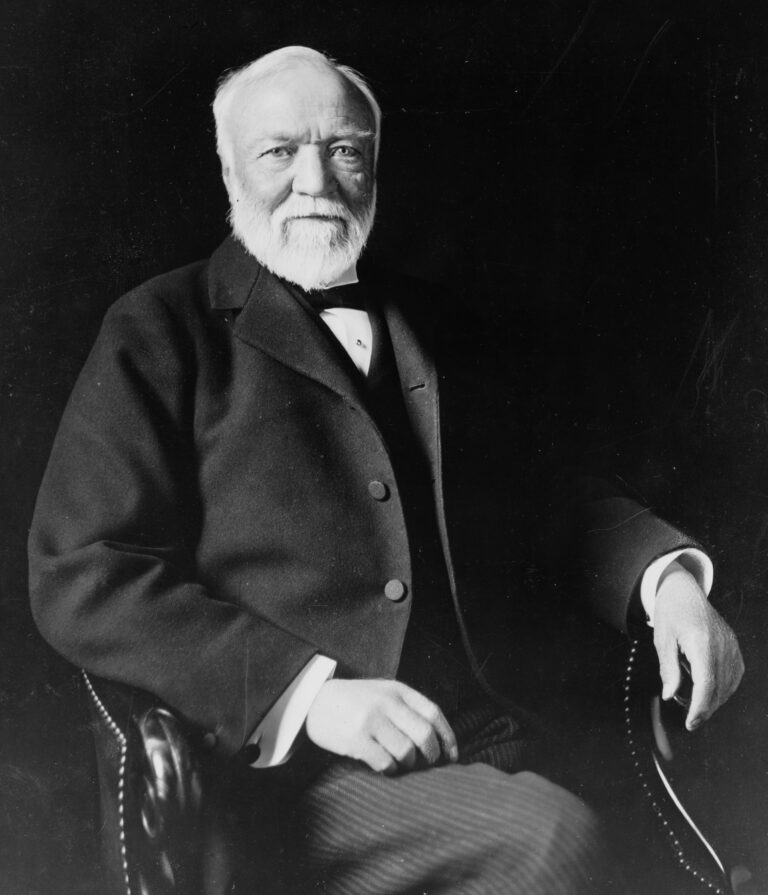The Quest for Excellence: Why Elite Leaders Are Lifelong Learners

Leaders as Eternal Learners: Pioneering Excellence
In a world marked by rapid change, complexity, and uncertainty, the role of leaders has never been more critical. Leaders are not merely individuals who steer organizations toward their goals; they are the guiding stars that illuminate the path through the ever-shifting landscape of the 21st century. In this era of transformative innovation and global interconnectedness, the expectations of leaders have evolved dramatically from the traditional notions of command and control. Today, leadership is not about being at the helm with unwavering authority; it is about charting uncharted territories, inspiring teams, and adapting in real-time.
As we delve into the fascinating realm of leadership in this age of unprecedented challenges and opportunities, a remarkable truth emerges: elite leaders are learners. They possess an insatiable thirst for knowledge, a relentless pursuit of self-improvement, and an unwavering commitment to getting better each day. This article explores this compelling concept, dissecting the profound connection between leadership excellence and the ceaseless journey of learning.
Whether in the boardrooms of Fortune 500 companies, the corridors of political power, or the innovative hubs of emerging startups, one common thread binds elite leaders together: they love to learn. They don’t merely appreciate the value of knowledge; they revel in it. For them, learning isn’t a chore; it’s a privilege. It’s not a means to an end; it’s an end in itself. Their relentless pursuit of knowledge is not confined to a specific phase of their career or tied to a particular goal; it’s a lifelong journey.
In the pages that follow, we will embark on a comprehensive exploration of the multifaceted relationship between elite leadership and the pursuit of excellence through learning. We will delve into the core attributes that define the mindset of elite leaders, the ways in which their commitment to continuous learning shapes their leadership journey, and the profound impact this has on their organizations and the people they lead.
But first, let us journey back in time, tracing the evolution of leadership itself, to understand why the concept of elite leaders as learners has never been more relevant than it is today. We will uncover how the landscape of leadership has shifted from the conventional hierarchies of authority to a more dynamic, adaptable, and collaborative model, creating a fertile ground for the emergence of leaders who are not just adept in their roles but are truly exceptional because they are perpetual learners.
Evolution of Leadership: From Traditional to Transformative
As we embark on our exploration of why elite leaders are, above all, dedicated learners, it is crucial to recognize that the concept of leadership itself has undergone a profound transformation over the course of history. The traditional view of leadership was characterized by rigid hierarchies, top-down decision-making, and a focus on authority and power. Leaders in this paradigm were often seen as the final arbiters of knowledge, possessing all the answers and directives.
In this traditional model, leadership was synonymous with control. Leaders wielded authority and exercised it with a firm hand, relying on their experience and intuition to guide their organizations. Learning, in this context, was often associated with entry-level positions or early career stages, a means to acquire the necessary skills to climb the hierarchical ladder. Once a leader reached a certain echelon, the assumption was that they had “arrived” and no longer needed to engage in learning endeavors with the same vigor.
However, as the world began to change at an accelerating pace, the limitations of this traditional leadership model became glaringly evident. Globalization, technological advancements, and the rise of the information age ushered in an era of unprecedented complexity. Organizations had to adapt swiftly to remain competitive, and the top-down, command-and-control approach simply could not keep up.
The birth of the modern leadership paradigm can be traced back to the recognition that leaders needed to evolve along with the world they operated in. This shift marked the beginning of a more collaborative and adaptive form of leadership, one that was characterized by open communication, shared decision-making, and an emphasis on agility and innovation.
In this new landscape, leaders were no longer expected to have all the answers. Instead, they were expected to facilitate a culture of learning and creativity within their organizations. The role of leaders evolved from being the sole source of knowledge to being the catalysts for knowledge sharing and creation. The hallmark of modern leadership became the ability to inspire and empower others, fostering an environment where everyone, regardless of their position, could contribute ideas and drive innovation.
Fast forward to the 21st century, and we find ourselves in a transformative era of leadership. The demands on leaders have reached new heights. They must navigate not only the complexities of business and technology but also the intricacies of a diverse, multicultural, and socially conscious world. Leadership excellence in this context is not about maintaining authority; it’s about inspiring and enabling individuals and teams to adapt and thrive in the face of constant change.
The evolution of leadership, from traditional to transformative, has been marked by a fundamental shift in perspective. Leaders are no longer seen as the solitary masters of their domains, but as co-creators of a shared vision. It is within this evolving landscape that the concept of elite leaders as learners gains its profound significance.
Elite leaders have recognized that the traditional model of leadership is woefully inadequate in today’s dynamic world. They understand that the key to success is not the possession of knowledge but the relentless pursuit of it. They embrace the idea that leadership is not a destination but a journey, a continuous quest for excellence, and an unceasing commitment to personal and professional growth.
In the subsequent sections of this article, we will delve deeper into the mindset of elite leaders, exploring the specific attributes that set them apart as learners. We will uncover why they love to learn, how they prioritize self-improvement, and the tangible impact this has on their leadership effectiveness and the organizations they lead.
Mindset of Elite Leaders: A Relentless Pursuit of Excellence
The distinctive mindset that sets elite leaders apart from their peers is characterized by an unwavering commitment to excellence and a deep-seated passion for learning. This mindset is not a mere product of chance or circumstance but is cultivated through a deliberate and continuous effort to hone their leadership skills. In this section, we will explore the core attributes of the mindset that drives elite leaders to be lifelong learners.
Humility and Self-Awareness
At the heart of the elite leader’s mindset is humility. They recognize that they do not have all the answers and that there is always room for improvement. This humility is rooted in self-awareness—an acute understanding of their strengths and weaknesses. They are not afraid to confront their limitations and actively seek feedback to identify areas where they can grow. Instead of viewing feedback as criticism, they see it as an opportunity for growth and refinement.
Curiosity and a Hunger for Knowledge
Elite leaders are insatiably curious. They possess a natural inquisitiveness that drives them to ask questions, seek out new information, and explore different perspectives. Their curiosity extends beyond the boundaries of their industry or domain; they draw inspiration from diverse sources, recognizing that innovation often emerges at the intersection of ideas from various fields.
Resilience and Grit
The pursuit of excellence is not without its challenges, and elite leaders understand this well. They are resilient in the face of setbacks and failures, viewing them as valuable learning experiences rather than insurmountable obstacles. Their resilience is coupled with a tenacious grit that keeps them focused on their long-term goals, even when confronted with adversity.
Adaptability and Open-Mindedness
In a rapidly changing world, adaptability is a prized attribute. Elite leaders are quick to embrace change and adapt their strategies in response to evolving circumstances. They are open-minded, willing to consider new ideas, and flexible in their thinking. They understand that what worked yesterday may not work tomorrow, and they are unafraid to pivot when necessary.
A Growth Mindset
Perhaps the most fundamental aspect of the elite leader’s mindset is the cultivation of a growth mindset. Coined by psychologist Carol Dweck, a growth mindset is the belief that abilities and intelligence can be developed through effort and learning. Elite leaders fully embrace this concept, rejecting the notion of fixed abilities. They view challenges as opportunities to learn and develop, and setbacks as stepping stones to success.
Commitment to Self-Improvement
For elite leaders, self-improvement is not a sporadic endeavor; it is a way of life. They set aside dedicated time for personal and professional development, whether through reading, attending seminars, seeking mentorship, or engaging in reflective practices like journaling or meditation. They are committed to becoming the best versions of themselves, understanding that their growth directly impacts the growth of their teams and organizations.
Leading by Example
One of the most powerful ways elite leaders manifest their mindset is by leading by example. They demonstrate their commitment to learning and self-improvement through their actions, inspiring those around them to do the same. They create an environment where learning is not just encouraged but celebrated, fostering a culture of continuous improvement within their organizations.
In essence, the mindset of elite leaders can be summarized as an unquenchable thirst for excellence. They are not content with mediocrity or complacency. They embrace the challenges of leadership with an indomitable spirit, viewing each day as an opportunity to become a better leader than they were yesterday. This mindset fuels their passion for learning and drives their relentless pursuit of excellence in the ever-evolving landscape of leadership. In the sections that follow, we will delve deeper into how this commitment to learning shapes their leadership journey and the profound impact it has on both themselves and their organizations.
Pursuit of Excellence: Obsession with Self-Improvement
The pursuit of excellence is a defining characteristic of elite leaders, and their obsession with self-improvement is at the core of this relentless drive. For these exceptional individuals, the journey toward becoming a better leader is an unending odyssey, one that transcends the boundaries of position, power, and prestige. In this section, we will delve into why elite leaders are so deeply committed to self-improvement and how this commitment manifests in their daily lives and leadership practices.
A Never-Ending Quest
Elite leaders view leadership as a never-ending quest for mastery. They understand that there is no plateau of achievement where they can rest comfortably. Instead, they see each milestone as a stepping stone to the next level of proficiency. Their obsession with self-improvement is not driven by external recognition or rewards; it is an intrinsic desire to be the best they can be.
Embracing the Discomfort of Growth
Growth and improvement often come with discomfort. Elite leaders not only embrace this discomfort but actively seek it out. They put themselves in situations that challenge their abilities and stretch their comfort zones. They understand that true growth occurs when they venture into the unknown and confront their limitations head-on.
Habit of Reflective Practice
Self-improvement is not a haphazard process for elite leaders; it is a structured and intentional endeavor. Many cultivate the habit of reflective practice, regularly setting aside time to assess their actions, decisions, and outcomes. Through self-reflection, they gain valuable insights into their strengths and areas for improvement, enabling them to make informed adjustments.
Learning from Failure
Failure is not seen as a setback by elite leaders; it is a valuable teacher. When they encounter failure, they do not shy away from it or seek to assign blame elsewhere. Instead, they dissect their failures to uncover the lessons hidden within. This process of learning from failure not only fuels their self-improvement but also fosters a culture of resilience within their teams and organizations.
Balancing Confidence and Humility
Confidence is a hallmark of leadership, but elite leaders strike a delicate balance between confidence and humility. They are confident in their abilities, yet humble enough to recognize that they are not infallible. This balance allows them to remain open to feedback and receptive to new ideas, furthering their growth as leaders.
Mentorship and Continuous Learning
Elite leaders understand the power of mentorship and the importance of continuous learning. They seek out mentors who can provide guidance, wisdom, and a fresh perspective. They are avid readers, devouring books, articles, and research that expand their knowledge base. They attend conferences, workshops, and seminars to stay abreast of industry trends and best practices.
Inspiring Others Through Example
Perhaps the most compelling aspect of their obsession with self-improvement is how it inspires those around them. Elite leaders lead by example, demonstrating their commitment to growth and learning in their daily actions. This not only motivates their teams to follow suit but also creates a culture where everyone is encouraged to strive for excellence.
Intrinsic Reward of Mastery
Ultimately, the obsession with self-improvement is driven by the intrinsic reward of mastery. Elite leaders find fulfillment in the journey itself, in the process of becoming the best leaders they can be. They understand that leadership is not a destination but an ongoing evolution, and they revel in the continuous pursuit of excellence.
In conclusion, elite leaders are learners not because they seek external validation or accolades, but because they are intrinsically motivated by the pursuit of excellence. Their obsession with self-improvement is a testament to their unwavering dedication to leadership mastery. It is this commitment to growth, combined with their unique mindset, that propels them to the forefront of their fields and inspires others to follow in their footsteps. In the following sections, we will explore how their commitment to learning shapes their leadership practices and the profound impact it has on their organizations and teams.
Role of Continuous Learning: Nurturing Leadership Excellence
Continuous learning is the lifeblood of leadership excellence, and elite leaders understand this fundamental truth. They recognize that leadership is not a static position but a dynamic journey that requires ongoing development and adaptation. In this section, we will delve into why continuous learning is indispensable for leadership, the various modalities through which elite leaders engage in learning, and the profound impact this has on their leadership effectiveness.
Leadership in Flux: The Need for Continuous Learning
The contemporary leadership landscape is marked by volatility, uncertainty, complexity, and ambiguity (VUCA). In such an environment, leaders who rest on their laurels quickly find themselves outpaced by change. Elite leaders understand that the only way to navigate these turbulent waters is through continuous learning. They view learning not as an occasional event but as a perpetual process woven into the fabric of their leadership.
Formal Education and Executive Development
One avenue through which elite leaders engage in continuous learning is formal education and executive development programs. These programs provide structured opportunities to acquire new knowledge, skills, and perspectives. Whether it’s enrolling in advanced degrees, attending leadership workshops, or participating in specialized training, elite leaders leverage formal education to stay at the forefront of their fields.
Mentorship and Coaching
Mentorship and coaching play a pivotal role in the learning journey of elite leaders. They seek out mentors and coaches who can provide guidance, offer valuable insights, and serve as trusted advisors. These mentorship relationships are not one-sided; elite leaders actively engage in reciprocal learning, sharing their experiences and expertise with their mentors as well.
Learning from Peers and Networking
Elite leaders understand the power of learning from their peers. They actively engage in networking and peer-to-peer learning opportunities, such as industry conferences and professional associations. These interactions provide access to diverse perspectives and best practices, enriching their knowledge base and expanding their leadership toolkit.
Experiential Learning
Experiential learning is a cornerstone of leadership development for elite leaders. They recognize that some of the most profound lessons come from hands-on experiences, both successes and failures. They actively seek out challenging assignments, take calculated risks, and use each experience as a platform for growth and learning.
Self-Directed Learning and Reading
A common thread among elite leaders is their voracious appetite for reading and self-directed learning. They consume a wide range of literature, from leadership classics to the latest research in their fields. This self-directed learning allows them to stay informed about emerging trends, gain fresh perspectives, and adapt their strategies accordingly.
Innovation and Creativity
Continuous learning fuels innovation and creativity in leadership. Elite leaders use their knowledge and insights to envision new possibilities and devise innovative solutions to complex problems. They encourage a culture of innovation within their organizations, where learning and experimentation are celebrated.
Adapting to Change
Adaptability is a hallmark of elite leadership, and continuous learning is the key to remaining agile in the face of change. These leaders are quick to adapt their strategies and embrace emerging technologies, market shifts, and societal changes. They see change not as a threat but as an opportunity for growth.
A Commitment to Lifelong Learning
Above all, elite leaders exhibit a commitment to lifelong learning. They recognize that leadership is a journey with no final destination. They view each day as an opportunity to learn, grow, and refine their leadership skills. This commitment to continuous learning is not just a professional choice but a personal ethos.
In essence, continuous learning is the thread that weaves together the fabric of elite leadership. It enables leaders to stay relevant, adapt to change, and inspire their teams to excel. As we progress in this exploration, we will delve into the profound impact of continuous learning on elite leaders’ organizations and the individuals they lead, illuminating how this commitment to growth drives excellence at every level.
Overcoming Challenges: The Grit of Elite Leaders
The path of continuous learning and relentless self-improvement is not without its challenges, and elite leaders are no strangers to the obstacles that accompany their pursuit of excellence. In this section, we will examine the common challenges that elite leaders face on their journey of continuous learning and how they demonstrate unwavering grit in overcoming these hurdles.
Time Constraints
In a world where time is a finite resource, elite leaders often find themselves grappling with demanding schedules. The demands of their roles, coupled with personal commitments, can make it challenging to allocate dedicated time for learning. However, they understand that time invested in self-improvement pays dividends in leadership effectiveness. To overcome this challenge, they prioritize learning by blocking off time in their calendars and treating it as non-negotiable.
Balancing Work and Learning
Elite leaders are acutely aware of the delicate balance between work responsibilities and learning endeavors. They face the challenge of ensuring that their commitment to self-improvement does not detract from their leadership responsibilities. To strike this balance, they integrate learning into their daily routines, seamlessly blending it with their work obligations.
Staying Informed in a Rapidly Changing World
In a world characterized by rapid technological advancements and evolving industries, elite leaders must contend with the challenge of staying informed. They are often faced with the daunting task of continuously updating their knowledge base to remain relevant in their fields. They meet this challenge head-on by staying curious, engaging with emerging trends, and seeking out expert insights to inform their decision-making.
Overcoming Plateaus
The pursuit of excellence occasionally leads to plateaus, where progress seems to stall. Elite leaders confront this challenge with a growth mindset, understanding that plateaus are natural in the journey of self-improvement. They employ strategies such as seeking feedback, experimenting with new approaches, and pushing through the discomfort of stagnation to break through to the next level.
Navigating Failure and Setbacks
Learning from failure is a fundamental aspect of continuous improvement, but it is also a significant challenge. Elite leaders must grapple with the emotional toll of failure and the fear of public scrutiny. However, they view failure as a stepping stone rather than a stumbling block. They face setbacks with resilience and use them as opportunities for growth, demonstrating the grit to persevere in the face of adversity.
Finding Effective Learning Strategies
With an abundance of learning resources and modalities available, elite leaders must discern which strategies are most effective for their unique needs. They experiment with various learning approaches, adapting and fine-tuning their methods based on what yields the best results. They are discerning consumers of knowledge, seeking quality over quantity.
Avoiding Complacency
A subtle but significant challenge that elite leaders face is the risk of complacency. Success can breed a sense of contentment that stifles the desire for continuous improvement. However, elite leaders are acutely aware of this trap. They cultivate a mindset of restless curiosity and maintain a healthy dissatisfaction with the status quo, constantly pushing themselves to reach new heights.
Motivating Others to Embrace Learning
Another challenge is motivating their teams and organizations to share in their commitment to learning. Elite leaders recognize that their own passion for self-improvement can be contagious, but they must also actively foster a culture of learning within their organizations. They lead by example, encourage experimentation, and celebrate learning successes to inspire those they lead.
In essence, elite leaders do not see these challenges as insurmountable barriers but as opportunities for growth and refinement. They demonstrate grit—the combination of passion and perseverance—in the face of these challenges, using them as catalysts for their continuous learning journey. Their ability to overcome these hurdles not only reinforces their commitment to excellence but also sets a powerful example for their teams and organizations. In the following sections, we will explore the profound impact of this commitment on the organizations led by elite leaders and the individuals they inspire.
Impact on Organizations: Cultivating Excellence
The unwavering commitment of elite leaders to continuous learning and self-improvement extends far beyond personal growth—it profoundly influences the organizations they lead. In this section, we will examine how this dedication to excellence shapes the culture, performance, and long-term success of these organizations.
Fostering a Culture of Excellence
Elite leaders understand that their behavior sets the tone for their organizations. By embodying a commitment to continuous learning, they inspire and cultivate a culture of excellence within their teams. In such a culture, learning is not an afterthought but an integral part of daily operations. Team members are encouraged to embrace learning, take calculated risks, and innovate fearlessly.
Increased Adaptability and Agility
Continuous learning enhances an organization’s adaptability and agility—critical qualities in an ever-evolving world. Elite leaders, by staying informed and open to change, ensure that their organizations can respond quickly to shifting market dynamics, emerging technologies, and unforeseen challenges. This adaptability allows them to thrive even in the face of uncertainty.
Attracting and Retaining Top Talent
Organizations led by elite leaders become magnets for top talent. Talented individuals are drawn to environments where learning is valued and personal growth is prioritized. Furthermore, elite leaders are skilled at recognizing and nurturing the potential of their team members, leading to increased job satisfaction and reduced turnover.
Innovation and Creativity
A commitment to self-improvement fosters innovation and creativity within organizations. Elite leaders actively encourage their teams to explore new ideas, experiment with novel approaches, and think outside the box. This culture of innovation often leads to breakthrough solutions, new product developments, and enhanced competitiveness.
Improved Decision-Making
Elite leaders’ dedication to learning and staying informed equips them with a broader knowledge base and a more comprehensive understanding of industry trends. This depth of knowledge translates into more informed and effective decision-making. Informed decisions lead to better outcomes, reduced risks, and sustainable growth.
Resilience and Risk Management
Organizations led by elite leaders tend to be more resilient in the face of adversity. The continuous learning mindset instills a sense of adaptability and resourcefulness that aids in risk management and crisis response. These organizations are better equipped to weather storms and emerge stronger on the other side.
Reputation and Credibility
Elite leaders are often associated with organizations that are at the forefront of their respective industries. This association enhances the reputation and credibility of the organization. Stakeholders, including customers, investors, and partners, have greater trust in organizations led by leaders who are committed to self-improvement and excellence.
Sustainable Growth and Longevity
The impact of elite leadership is not limited to short-term gains. Organizations under their guidance tend to experience sustainable growth and longevity. The combination of a learning culture, adaptability, and effective decision-making positions these organizations for continued success in a rapidly changing world.
Inspiring Future Leaders
Perhaps one of the most enduring legacies of organizations led by elite leaders is their ability to inspire the next generation of leaders. The commitment to continuous learning becomes a part of the organizational DNA, ensuring that the pursuit of excellence continues long after the current leadership has moved on.
In summary, the impact of elite leaders on their organizations is transformative. Their commitment to continuous learning creates a ripple effect that permeates every aspect of the organization’s culture and operations. These organizations become beacons of excellence, attracting top talent, fostering innovation, and achieving long-term success. As we delve deeper into this exploration, we will uncover how the commitment to self-improvement not only shapes the organizations themselves but also has a profound influence on the individuals who have the privilege of being led by elite leaders.
Nurturing a Learning Culture: Inspiring Excellence in Teams
Elite leaders understand that their commitment to continuous learning is not a solitary pursuit; it’s a catalyst for nurturing a learning culture within their organizations. In this section, we will explore how elite leaders actively foster an environment where learning is celebrated, teams are inspired, and individual excellence flourishes.
Setting the Example
Elite leaders lead by example. They demonstrate their commitment to continuous learning in their daily actions, whether it’s sharing insights from a recent book they’ve read, seeking feedback on their performance, or openly admitting when they don’t have all the answers. Their actions send a clear message to their teams: learning is not only encouraged but expected.
Encouraging Curiosity and Questioning
A learning culture thrives on curiosity and questioning. Elite leaders actively encourage their team members to ask questions, challenge assumptions, and explore new ideas. They create an environment where curiosity is celebrated, and no question is considered too basic or too challenging.
Providing Resources and Opportunities
Elite leaders invest in resources and opportunities for learning. They allocate budgets for training, provide access to educational materials, and encourage participation in conferences and workshops. They understand that these investments are not expenses but investments in the growth and capability of their teams.
Recognizing and Rewarding Learning
In a learning culture, efforts and achievements related to learning are recognized and rewarded. Elite leaders acknowledge and celebrate the accomplishments of team members who actively engage in self-improvement and contribute to the organization’s knowledge base. This recognition reinforces the value of learning within the organization.
Promoting Mentorship and Peer Learning
Elite leaders actively promote mentorship and peer learning within their teams. They encourage experienced team members to mentor junior ones, creating opportunities for knowledge transfer and skill development. Additionally, they foster an atmosphere where team members can learn from each other’s experiences and expertise.
Embracing Diversity of Thought
A hallmark of a learning culture is the embrace of diversity of thought. Elite leaders recognize that innovation often arises from the collision of diverse perspectives. They actively seek out team members with diverse backgrounds, experiences, and viewpoints, creating a rich tapestry of ideas that fuels creativity and problem-solving.
Failure as a Learning Opportunity
In a learning culture, failure is not stigmatized but seen as a valuable learning opportunity. Elite leaders encourage a healthy approach to failure, where mistakes are analyzed, lessons are extracted, and improvements are made. This mindset shift from blame to learning fosters resilience and innovation.
Performance Feedback and Development
Continuous learning extends to performance feedback and development. Elite leaders provide constructive feedback and development opportunities to help their team members grow. They actively engage in ongoing coaching and mentoring to support individual and collective improvement.
Balancing Productivity and Learning
Elite leaders understand the importance of balancing productivity and learning. They create an environment where team members have the time and space to engage in self-improvement without feeling overwhelmed by their daily responsibilities. This balance ensures that learning remains a sustainable and integral part of the organization’s culture.
In essence, nurturing a learning culture is not a passive endeavor for elite leaders; it’s a deliberate and ongoing commitment. They understand that a learning culture is not only essential for individual growth but also a strategic asset that drives the long-term success and resilience of their organizations. As we proceed in this exploration, we will delve into how this culture of continuous learning impacts the individuals within these organizations, shaping them into exceptional leaders and contributors in their own right.
Future of Elite Leadership: Perpetual Learning in a Changing World
The concept that elite leaders are lifelong learners is not a static one; it evolves alongside the ever-changing landscape of leadership and the world at large. In this section, we will contemplate the future of elite leadership, how continuous learning will remain a linchpin of success, and the evolving challenges and opportunities that will shape this remarkable journey.
Embracing Technological Advancements
As technology continues to advance at an exponential rate, elite leaders will find themselves in a dynamic landscape where digital transformation and automation are commonplace. To remain at the forefront, leaders must embrace these technological shifts and continuously update their digital literacy. They must understand the implications of emerging technologies and leverage them to drive innovation within their organizations.
Navigating Global Complexity
The world is increasingly interconnected, with global issues and challenges transcending borders. Elite leaders must navigate this complex global landscape, addressing diverse cultural, social, and geopolitical factors. To excel, they will need a deep understanding of international markets, cross-cultural communication, and global trends. Lifelong learning will be essential to maintain a global perspective and adapt to changing international dynamics.
Embodying Inclusivity and Diversity
Leadership in the future will require a heightened emphasis on inclusivity and diversity. Elite leaders will need to cultivate an understanding of diverse perspectives, foster inclusive cultures, and champion equality within their organizations. Continuous learning will be integral to dismantling biases and promoting equitable leadership practices.
Adapting to Environmental Challenges
Environmental sustainability will become an even more critical consideration for leaders. As environmental challenges such as climate change and resource scarcity intensify, elite leaders must develop a deep understanding of sustainability practices and their impact on business. The ability to lead organizations toward environmentally responsible practices will be a hallmark of future elite leaders.
Evolving Leadership Styles
The traditional top-down leadership model is giving way to more collaborative and participatory leadership styles. Future elite leaders will need to adapt their leadership approaches to engage and empower their teams actively. They will need to continuously refine their skills in areas such as emotional intelligence, empathy, and team dynamics.
Nurturing Entrepreneurial Thinking
Entrepreneurial thinking and innovation will continue to be highly prized qualities in leaders. Elite leaders will need to foster entrepreneurial mindsets within their organizations, encouraging experimentation, calculated risk-taking, and a culture of creative problem-solving. Continuous learning will help leaders stay at the cutting edge of innovation.
Ethical Leadership and Social Responsibility
Ethical leadership and corporate social responsibility will remain at the forefront of leadership expectations. Elite leaders will need to grapple with complex ethical dilemmas and make decisions that prioritize the welfare of their organizations and society as a whole. Continuous learning will be vital for staying informed about evolving ethical standards and social issues.
Preparing Future Generations
As elite leaders continue their journey of continuous learning, they will also play a crucial role in preparing the next generation of leaders. Mentorship, knowledge sharing, and actively developing leadership pipelines will be essential responsibilities. This transfer of wisdom and experience will ensure that the commitment to excellence through learning endures beyond their own leadership tenures.
In conclusion, the future of elite leadership is intrinsically tied to the commitment to continuous learning. As the world evolves and presents new challenges and opportunities, elite leaders will remain at the forefront by embracing change, adapting to emerging trends, and demonstrating unwavering dedication to self-improvement. They will continue to inspire excellence in their organizations and pave the way for a new generation of leaders who share in their commitment to lifelong learning. The concept that elite leaders are learners is not a fleeting trend but a timeless principle that will shape the future of leadership for generations to come.
Charting the Course: Elite Leaders, Learning, and Leadership’s Future
In the unfolding narrative of leadership, one resounding truth emerges: elite leaders are, at their core, learners. They love to learn not as a passing fancy, but as an unwavering commitment to their pursuit of excellence. This article has taken us on a compelling journey through the mindset, practices, challenges, and profound impacts of elite leaders who are perpetual learners.
The evolution of leadership from the traditional model of command and control to the dynamic and collaborative model of today has underscored the significance of continuous learning. Elite leaders have embraced this shift, recognizing that their effectiveness is no longer solely determined by their authority but by their ability to inspire, adapt, and innovate.
Their mindset is a testament to their pursuit of excellence. Humility, curiosity, resilience, adaptability, and a growth mindset define their character. They understand that leadership is not a destination but a journey, one that demands perpetual self-improvement.
In their relentless pursuit of excellence, elite leaders overcome challenges with grit. Time constraints, balancing work and learning, staying informed in a rapidly changing world, and avoiding complacency are hurdles they confront head-on. Failure is not seen as a setback but as a stepping stone to success, and they motivate their teams to embrace the same mindset.
The impact of elite leaders on their organizations is transformative. They foster a culture of excellence, increase adaptability and agility, attract top talent, inspire innovation, and make informed decisions. Their organizations become beacons of success and sustainability, positioning them for long-term growth and resilience.
But the influence of elite leaders doesn’t end within the confines of their organizations. They nurture a learning culture that empowers individuals to become exceptional leaders in their own right. Through mentorship, recognition, and a commitment to diversity, they inspire others to embrace continuous learning as a path to excellence.
As we peer into the future, the journey of elite leadership through continuous learning remains as vital as ever. Technological advancements, global complexity, inclusivity and diversity, environmental challenges, evolving leadership styles, entrepreneurial thinking, ethical leadership, and social responsibility are the new frontiers that elite leaders must navigate. Yet, they will do so with the same dedication to excellence that has defined their journey thus far.
In closing, the concept that elite leaders are learners is not a mere observation; it’s a timeless principle that underpins their exceptional leadership. It’s a philosophy that transcends time and place, shaping the present and charting the course for the future of leadership. As we reflect on the odyssey of elite leaders, one thing remains clear: their commitment to continuous learning is an unending journey toward excellence, a journey that illuminates the path for all who aspire to lead with distinction in a rapidly changing world.






